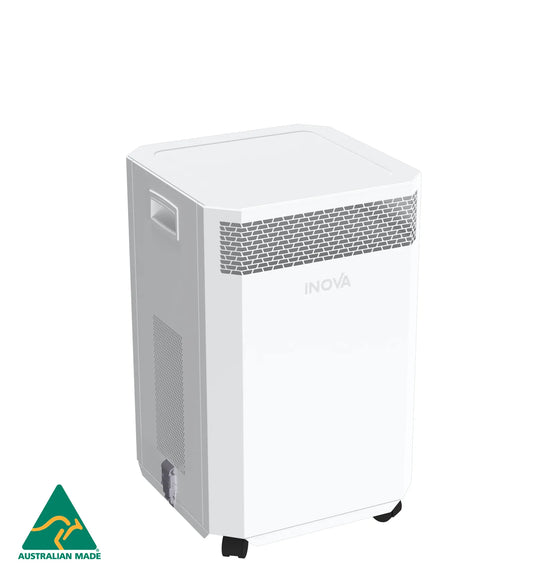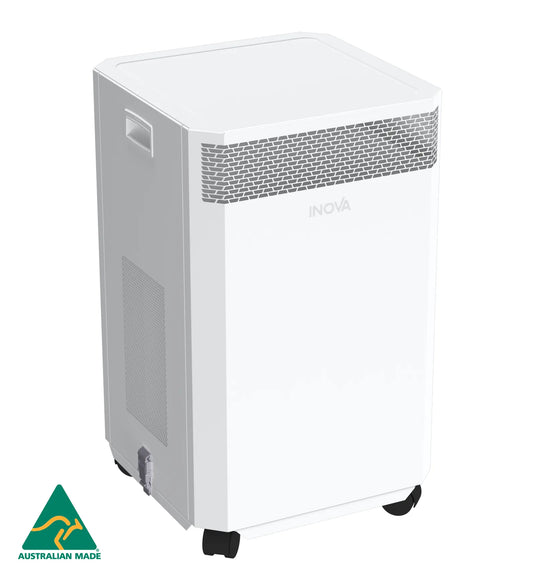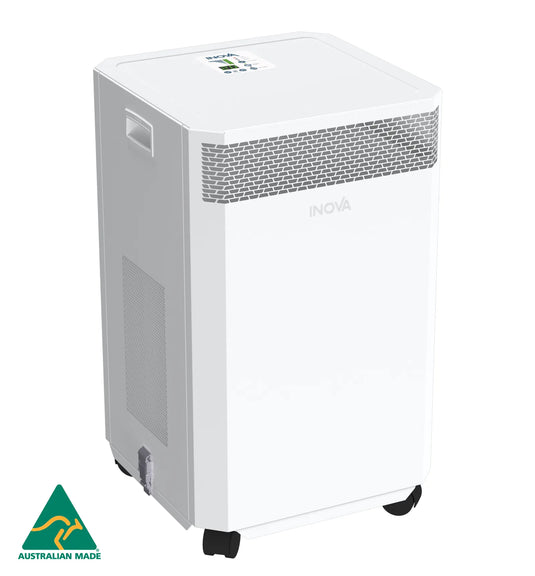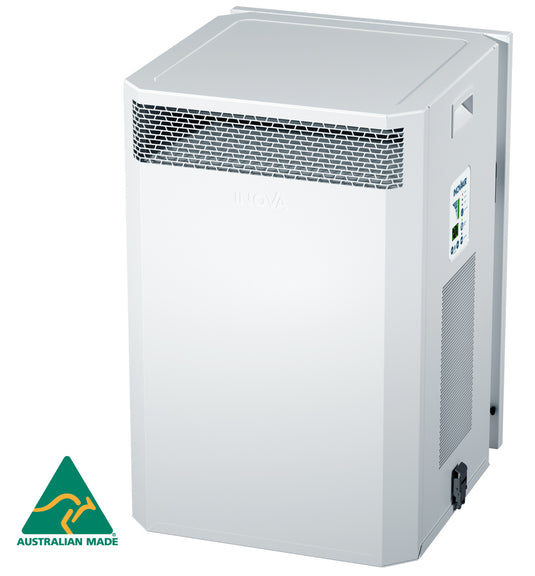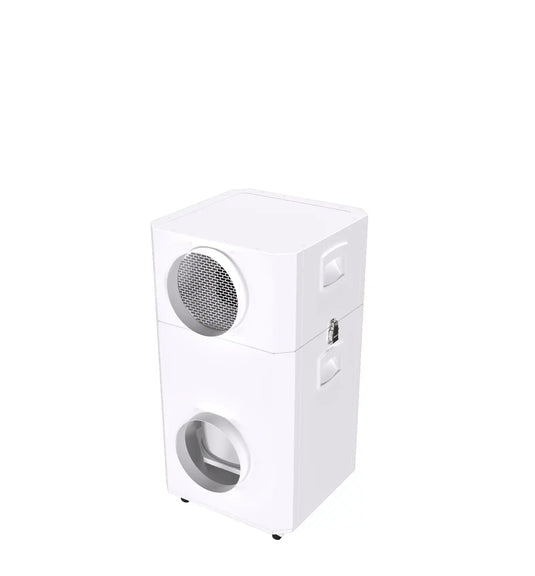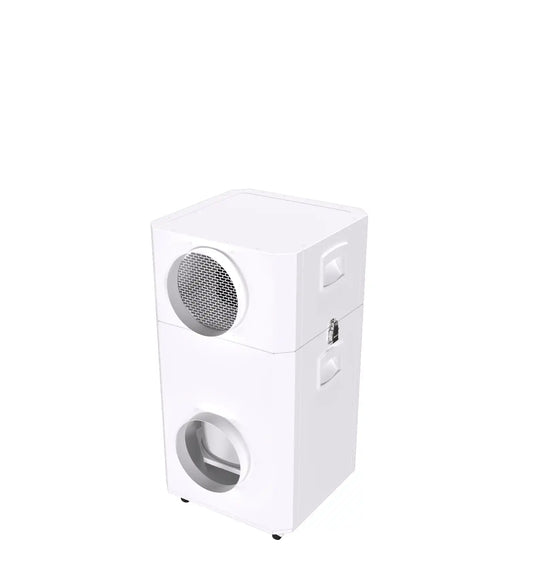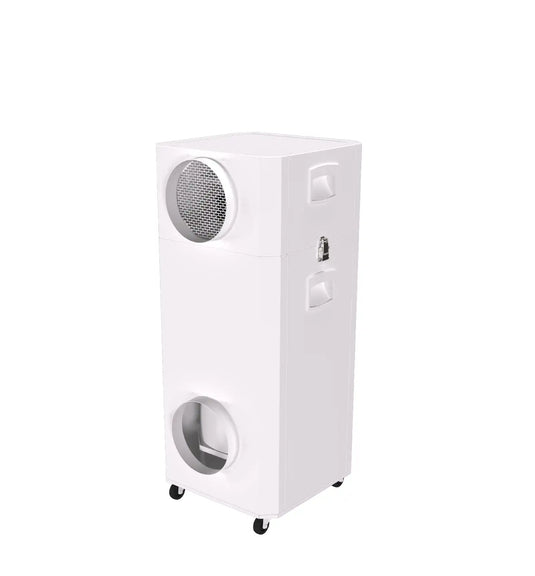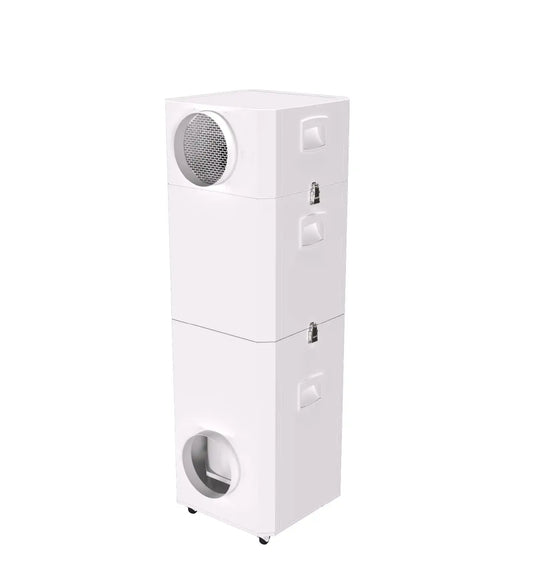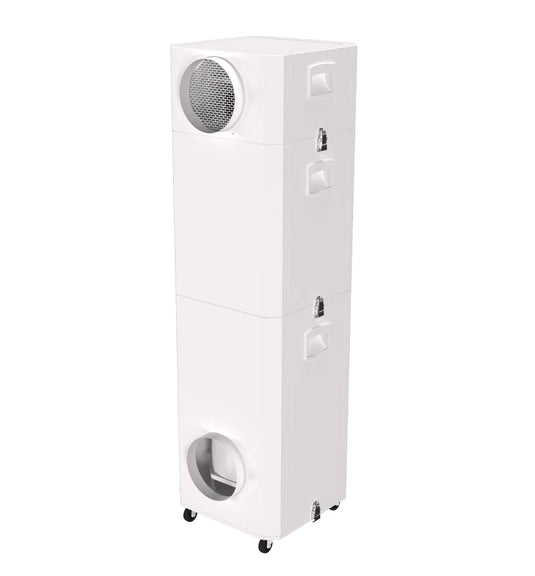Frequently Asked Questions
Got a question? We’ve got an answer.
We understand that air quality is a top priority for our customers. We’ve compiled a list of frequently asked questions to give you the resources you need to get the most out of your air purifier.
How long do air purifier filters last?
Depending on the environment, the lifespan of each filter is typically:
Stage 1 - Technostat Pre-filter. 3-6 months continuous use.
Designed to remove ambient fine dust particles from the air and increase the lifespan of the HEPA and Activated Carbon filters.
Stage 2 - Medical-grade HEPA Filter. 3-5 years continuous use.
The HEPA filter removes viruses, bacteria, mould spores, allergens, pollen and dust mites.
Stage 3 - Activated Carbon Filter. 1-3 years continuous use.
This filter is designed to remove chemical pollutants, volatile organic compounds (VOC’s), smoke, road pollution and odours.
How do I know when to change the air purifier filters?
Depending on the model and filter configuration you will have either 2 or 3 filters in your system.
Stage 1 - Technostat Pre-filter.
On average the pre-filter is designed to last up to 6 months of continuous use. Dust levels in the ambient air will affect how long the pre-filter will last. Like a vacuum cleaner bag it is impossible to predict the exact lifespan because that comes down to how it is used. Pre-filters are white in colour and will turn grey fairly quickly within 1-2 weeks of use. This is nothing to be concerned about and simply means the filter is doing its job. After months of use, a dust layer will build up on the exterior of the pre-filter. We recommend checking the dust build-up on the pre-filter every 3 months of use. When the dust layer is approximately 2 mm thick the filter should be replaced.
Stage 2 - Medical-grade HEPA filter.
The H13 HEPA filter is designed to last 3 to 5 years under normal use. Like with other filters the environment in which it is used will determine the filter life.
The outside of the HEPA filter will change colour and turn grey when it needs changing. Generally, for the first two years of use the filter will remain white and then gradually get darker in the final months of its life. Note: the inside of the HEPA filter will always remain white, so it is important to check the outside of the filter which is visible when the pre-filter is being changed.
Stage 3 - Activated carbon wrap filter. (Excluded in V series systems)
The E7 impregnated carbon wrap around filter is designed for light duty use and will last approx. 6-12 months.
All other models utilise granular activated carbon (GAC) filters with kilograms of carbon with a life of 1-3 years depending on use.
Activated carbon filters work by adsorbing chemicals, gases and odours from the air and the more activated carbon in the filter the better it will purify the air due to a larger surface area, it will also last longer. For example: a 6 kg activated carbon filter will last 3 times as long as a 2 kg filter and remove 3 times the amount of pollutants from the air during its life. Activated carbon filters are like large sponges which have an extraordinarily large surface area.
Carbon filters should be changed when they are saturated, this means the filter has entirely filled up with whatever it has filtered from the air during use. You can tell when a carbon filter needs changing because the air coming out of the air purifier will either be tainted with an odour of what it has adsorbed during use, or the air will simply stop smelling clean or smell stale.
Air which is purified through a carbon filter has a very distinct clean smell which is void of all odours, except for a slight sweet smell from the activated carbon itself, most people describe the carbon as having a “fresh smell”.
How much power will my air purifier consume?
INOVA systems use high efficiency motors with very little energy consumption. Starting at a very low 6 watts/hour.
Please refer to the specification table on each of the INOVA product pages for further information.
What is the best air purifier for mould?
For mould removal you would want a system with a medical-grade HEPA filter with high-capacity activated carbon, using kilograms of activated carbon. This is because mould is an issue which involves both the mould spore and volatile organic compounds which are produced by the mould (musty odours).
For a bedroom sized space, we would suggest the INOVA E8 with a 2.4kg activated carbon filter, or for a larger living space, the INOVA E20 or DE20 which each include a 6kg activated carbon filter. More information can be found here.
How noisy are INOVA air purifiers?
INOVA systems are constructed from powder coated aluminium which reduces the vibration noise often found in cheap plastic models. System noise ranges from a whisper quiet 32db to 58db on higher fan speeds. We use near silent motors resulting in airflow noise only. This makes our systems suitable for use in a bedroom at night.
What is the lifespan of a carbon filter?
How long an activated carbon filter lasts depends greatly on the environment where the air purifier is used and the level of chemicals, odours and VOCs (Volatile Organic Compounds) it is exposed to during operation.
Carbon filters have a large surface area which means they have a very high absorption capacity. When the levels of pollutants are high, the filter can become saturated quickly, reducing its efficiency and lifespan.
Here are some of the conditions that can shorten the lifespan of an activated carbon filter in an air purifier:
1. Indoor sources
- Newly built or renovated home
- New furniture
- New carpet, rug, flooring
- New paint
- Gas stoves\cookers
- Leaky subfloors with poor ventilation
- Mould
2. Outdoor sources (enters through doors, windows and ventilation)
- Main road pollution
- Construction sites
- Bushfire smoke
3. Lifestyle
- Cooking odours * If cooking smells don't bother you we suggest switching the air purifier off when cooking to extend the life of the activated carbon filter.
- Aerosol sprays; air fresheners
- Cigarette smoke, incense or candles
- Cleaning products
- Products that emit fragrances such as some cleaners, disinfectants or room deodorizers
- Any product that creates ozone
4. Environmental
- High humidity levels - High humidity levels can increase the amount of moisture absorbed by the filter, which can cause a reduction in lifespan.
To ensure that the filter is working at maximum effectiveness, it is important to be mindful of the conditions that can reduce its lifespan and to properly maintain and replace the filter when necessary.
A saturated filter means it has done its intended job and removed chemicals and odours from the air that has passed through it.

